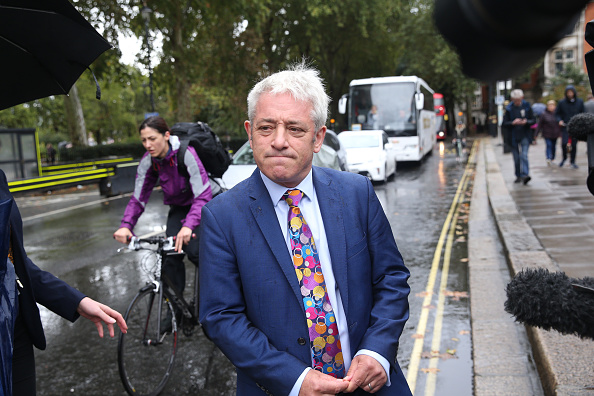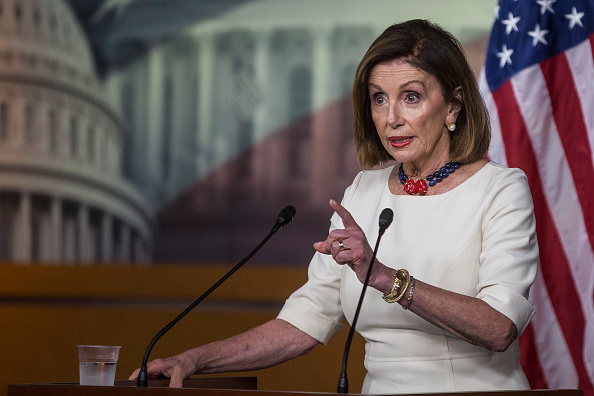Meanwhile, a recently released phone conversation memorandum transcript between Trump and newly elected Ukrainian president Volodymyr Zelensky has added a new saga to the Mueller investigation. The transcript has also revealed an alleged attempt by trump to gather evidence of corruption from presidential hopeful Joe Biden. Since then impeachment proceedings have begun in the US House of Representatives, and thus far little is known of how far it will go.
One thing is for certain, both leading countries of the Anglosphere are facing unique challenges that seem to further undermine decades of political stability. While some might argue that these events are examples of the US and UK’s decline as global leaders, others view them examples of American and British democracy at work.
TRUMP AND JOHNSON: LAW BREAKERS?
As previously stated in various new articles, there is a historical precedent to parliament prorogation and in this since the government wasn’t doing anything illegal. However, when the case was moved to the UK Supreme Court, it noted that precedent and that the executive power did indeed have the right to suspend parliament. However, since the Supreme Court has a historical role in protecting parliamentary sovereignty, something that is a core of Britain’s constitution:
‘The sovereignty of Parliament would, however, be undermined as the foundational principle of our constitution if the executive could, through the use of the prerogative, prevent Parliament from exercising its legislative authority for as long as it pleased.’ The court said on September 24.

In other words, the Prime Minister does have the right to suspend parliament, but not if this suspension means that parliament cannot perform its legislative duties. It finally stated that presently there wasn’t a persuasive reason for Johnson to request the Queen to suspend parliament, and therefore it found the entire prorogation to be unlawful. While Johnson has publically shown his disagreements with the Court’s decision, he will now have to quickly think of what do next to deliver on Brexit, but the clock is not by his side. Since the passing of the Benn Bill into law earlier this month, Johnson is now required by law to request a Brexit deadline extension from the EU in the event that the House of Commons doesn’t approve of a proposed deal by October 19, effectively making it illegal for him to take the UK out of the EU without a deal.
While some MPs are now calling on Johnson to resign, others, such as Labor MP, have said that he should be impeached. The UK has a historical precedent of impeaching ministers, but not Prime Ministers. Moreover, the last ministerial impeachment occurred in 1806 and is considered to be a defunct punitive procedure towards law violating government officials. Additionally, since Johnson violated constitutional law rather than criminal law, he will not face the prospect of imprisonment. While Johnson may not have been immediately punished for his actions, a growing number of MPs are frustrated with his government for attempting to undermine parliament and he, therefore, might face a motion of no confidence. While the ball is now in the government’s court it seems to have few options left, except for calling an early general election, something that needs approval from 2/3 of MPs.
Surprisingly, Trump’s case is somehow even more complex than that of Johnson. The memorandum (which isn’t an exact transcript of the conversation), that Trump released of his phone conversation with Ukraine’s Zelensky touched upon two subjects, the Mueller investigation, and Joe Biden’s corruption allegations. On the investigation, Trump asked Zelensky to locate the Democratic National Convention’s server which was allegedly hacked by Russian intelligence. The reason Trump asked on this specific topic has to do with the allegation that the Democrats are hiding the server from the FBI, and its hiding location is somewhere in Ukraine. The other more damning aspect of the call was when Trump seemed to have asked the Ukrainian leader to probe Joe Biden and his son Hunter. This happened as he asked about former Ukrainian prosecutor general Viktor Shohin, which the parliament voted for his removal back in 2016 for corruption charges, while he was simultaneously carrying out an investigation on a natural gas company which Hunter, Biden’s son, was a member of its board of directors. A bigger twist to the scandal is that the ousting of Shohin happened at the behest of then-Vice President Joe Biden who allegedly threatened to withhold US funding to Ukraine unless the prosecutor general was removed. If this is true, then Trump might be colluding with a foreign government to uncover a scandal on a political opponent. While it is still unclear if Trump violated any laws, Speaker of the House, Nancy Pelosi certainly thinks he did, which is why she promptly started an impeachment inquiry against him.

EROSION OF LEADING DEMOCRACIES?
For decades, both the UK and the US have been seen as leading examples of democracies for the rest of the world. However, in recent years some of argued that the fact that nonconventional leaders such as Trump and Johnson have undermined the sanctity and ideals of these democracies, however, such views are quite shallow.
Let’s first look at the UK’s case, while Britain does not have a codified constitution to go back to in times of such crises, it does have historical precedent and conventions. Arguably, the most fundamental convention of the UK’s constitution is that of parliamentary sovereignty, which contends that the legislative branch of government (the British parliament) has power over other branches of government including the executive branch (the Prime Minister). And it is that concept which the Supreme Court said it was protecting when it announced its ruling. The primary reason why Parliament has supreme power over the government is because members of parliament are elected to represent their constituents, therefore they represent the citizens of the UK.
The US’s democratic conventions are different, for one the legislative branch does not have supreme power over other branches of government. Rather, the US employs a system of checks and balances which ensures that no one branch has too much power over the other; this ensures that limited government is maintained. As such, all three branches of government have different powers and these powers are all underlined in the US constitution. The process of impeachment is mentioned in the US constitution, which states that the House of Representatives has the sole power of impeachment. Any member of the House can raise impeachment proceedings, and House subcommittees investigate whether or not the president should be impeached. If the House votes to impeach the president, then the inquiry is moved to the Senate, which is responsible for trying the president in the presence of the Chief Justice. Senate would then vote, and the president can only be impeached if 2/3 of the upper chamber votes in favor of it. This entire process shows the concept of checks and balances in action since not one chamber of Congress presides over the entire procedure and the involvement of the chief justice ensures that the legislative branch is involved. Although impeachment processes are rare and the two that have happened before were never approved by the Senate, it is a punitive measure that theoretically prevents the President from conducting unlawful action.
It is evident, that what is happening in Britain and the US isn’t an erosion of the democratic ideals that they hold dear, rather these democracies are using the tools they have to ensure that their leaders fall in line with the state and people’s values. In other words, we are witnessing how these democracies take action to see to it that they never fall into autocratic territories.






